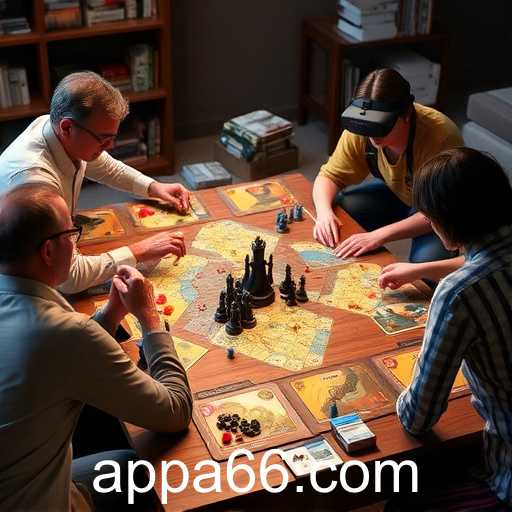Explore how board games have adapted and thrived in the digital age, appealing to both traditional enthusiasts and modern gamers.
In the world of entertainment, board games have long held a special place in our hearts and living rooms. From classics like Chess and Monopoly to newer, more strategic games like Catan and Ticket to Ride, these tactile sources of joy have always provided a perfect excuse to gather friends and family around a table. However, as digital entertainment continues to rise, many have questioned whether board games could withstand the allure of the screen. Surprisingly, they have not only survived but thrived in the digital era, blending traditional enjoyment with modern technology.
The key to the success of board games in this new digital landscape has been their ability to adapt and evolve. Online platforms such as Tabletopia and Board Game Arena have shifted the experience from the physical table to the global stage, allowing players to connect across distances that would have been unimaginable in the past. These platforms have made it easier than ever to find opponents and collaborators for even the most obscure of games, expanding the accessibility of board games like never before.
In addition to this, the advent of mobile applications and digital versions of board games has introduced a new layer of convenience and portability. Commuters can play a quick game of Splendor on a mobile device during their daily travels, while others might unwind at the end of a long day with a digital round of Carcassonne. Developers have expertly recreated the physical charm and strategic depth of these games for smaller screens, making them more approachable to a tech-savvy generation.
Virtual reality is also beginning to play a role in immersive board game experiences, providing unprecedented levels of interaction and engagement. Players now have the chance to interact with 3D representations of their favorite games, handling pieces and cards in a fully-realized digital space. This innovation appeals to those who seek a more hands-on experience without having to own a physical copy of the game.
Despite these advancements in technology, the essence of social interaction remains at the core of board gaming. The desire to connect, compete, and cooperate transcends the medium—whether it's face-to-face or pixel-to-pixel—as board games continue to foster community and companionship. The journey from the traditional board to the digital platform has been remarkable, and the future looks promising as more players embrace what's possible at the intersection of tradition and technology.




